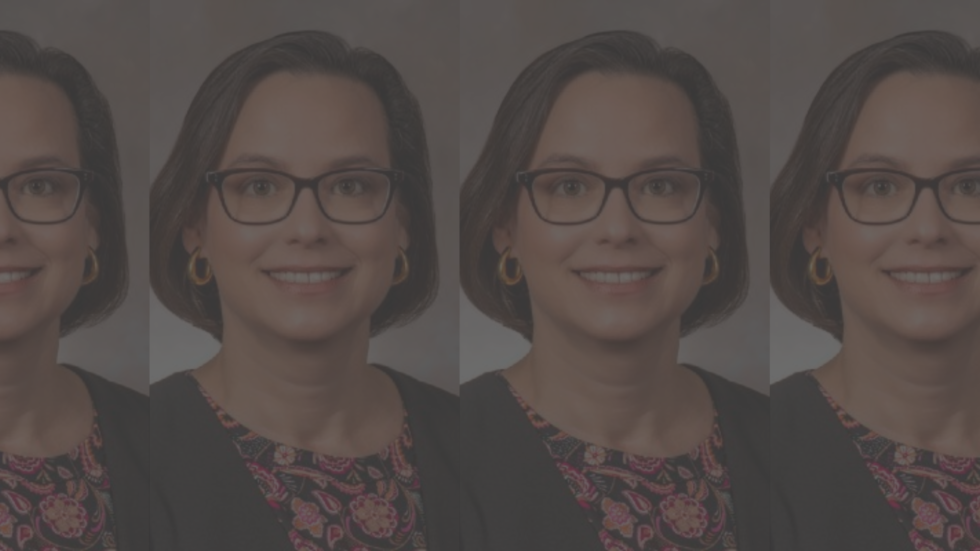
Some dream of becoming doctors in a hospital, and others may hope to open their own private practice or practice in an academic setting. However, many do not consider the career path of becoming a military doctor, who provides medical care to active members of the military and their families.
Becoming a military doctor was certainly not something Uniformed Services University Associate Dean for Diversity, Equity, and Inclusion (DEI) Jessica Bunin had in mind.
“I always knew that I wanted to be a doctor, [but] I don’t think for a long time I believed that I could,” Bunin said. “So I don’t know that I truly had it in my head that that was gonna be my path.”
Bunin competed in the New Jersey State swimming competitions during high school, which were hosted at the United States Military Academy, a military academy in West Point, New Jersey. There, she discovered her interest in attending military school, drawn by the fact that 2% of students in each class could matriculate directly to medical school.
“It pulled at my heartstrings,” Bunin said. “I saw soldiers marching around [which] was beautiful, and it’s a beautiful campus, and all these things won me over to going there.”
At West Point, Bunin described her undergraduate experience as exceedingly difficult, adding that it was the first time in her life where she felt like she was not good at anything. Following the “Beast Barracks” bootcamp during her freshman year summer, she recalled that everyone had called home crying at some point — Bunin was no exception, and she felt like she could never make it through and graduate.
One of the hardest parts of attending a military academy was that Bunin’s time “didn’t feel like her own” — her day started at 6a.m. and ended at 8p.m., which left her feeling exhausted. However, the structure and challenge of the academy was ultimately beneficial in preparing her for medical school.
“It was a really good experience for me to be there, and a really maturing experience for me, even though it’s really a hard place to be,” Bunin said.
Bunin graduated from the United States Military Academy, attended Tulane University School of Medicine, and then began her residency in psychiatry. She chose psychiatry because was fascinated by the human brain, especially diseases such as schizophrenia and obsessive compulsive disorder, and she took interest in the connection between neurology and psychology.
Eventually, Bunin received board certifications in both psychology and internal medicine. Following her residency, she practiced as an outpatient psychiatrist for three years before training to become a critical care doctor, a subspecialty of internal medicine that deals with seriously or critically ill patients who are at risk of life-threatening conditions.
Bunin noted that the functions of a normal doctor and a military doctor are similar. The difference lies in the fact that military doctors are deployed to combat zones and work with significantly less equipment, a practice she called “resource limited medicine.”
”We’re a little better trained to do resource limited medicine, no matter what specialty of medicine we do, [and] are all prepared to take care of soldiers and combat situations,” Bunin said. “So we have to maintain a different skill set than most other doctors do.”
Bunin recalled a time when she was deployed to Hawaii and had a patient who was suffering a very complicated pregnancy — during the delivery, she began to hemorrhage and was bleeding profusely. The woman was suddenly suffering from multiple organ system failure, and when her heart stopped, Bunin’s team rushed to resuscitate.
“I spent, honestly, 48 hours straight at her bedside managing her ventilator and managing her fluids, and to make sure that she was going to survive,” Bunin added.
One of Bunin’s favorite memories, she added, was the day her patient could finally go home, and she saw her holding her baby. Bunin still has photos from that day with her patient, her patient’s husband, and a few other people who had been intimately involved in her care.
“We had worked so hard to ensure that she survived and made it through that experience, and that baby was going to have a mother no matter what,” Bunin said. “We were going to do everything we could to make that happen, and then knowing that the baby did really well and the mother did really well was a pretty wonderful feeling. So I think that that’s one of my happiest memories.”
Learning never stops
One lesson Bunin has learned throughout the course of her life is that her education has never stopped. As associate dean for DEI at Uniformed Services University, she is surrounded by other associate deans who are constantly trying to learn more about their medical specialty, medical education, and how to optimize the medical school experience.
“I’ve never experienced that as much but I love going to work because I love sort of thinking about new projects with my peers and thinking about how we can learn more about different phenomena,” Bunin added. “And so I think that’s the biggest thing — is to just always have an attitude of growth and never thinking that you’re done.”
Feeling like she is able to learn whatever else she is interested in, at any point in her life, is one of the reasons as to why Bunin became more involved in research starting around five years ago. Specifically, she took interest in qualitative research, which encompasses understanding how people experience a phenomenon instead of just working with numbers.
Bunin has studied different types of educators and their perspectives on their professional identity formation, and she is currently studying first generation medical students and what their experiences are like compared to everyone else.
In her current position, Bunin is in charge of DEI and ensures that the medical student and faculty populations at Uniformed Services University remain diverse. She also ensures that adequate DEI education is implemented, a role that requires curriculum development and teaching.
One of the medical students, who was the only black woman in her class, conducted a research study interviewing the other black men in her class to get their understanding of what their experience of medical school was. The general consensus was that they felt disappointed in the lack of faculty diversity. This prompted the start of a faculty curriculum that showed students which professors were interested in being allies and better supporting students of color.
“Hopefully we can make our institution feel even more like a community, and do a better job of modeling civil discourse and how to work better, despite historical differences, than we do currently,” Bunin added.



